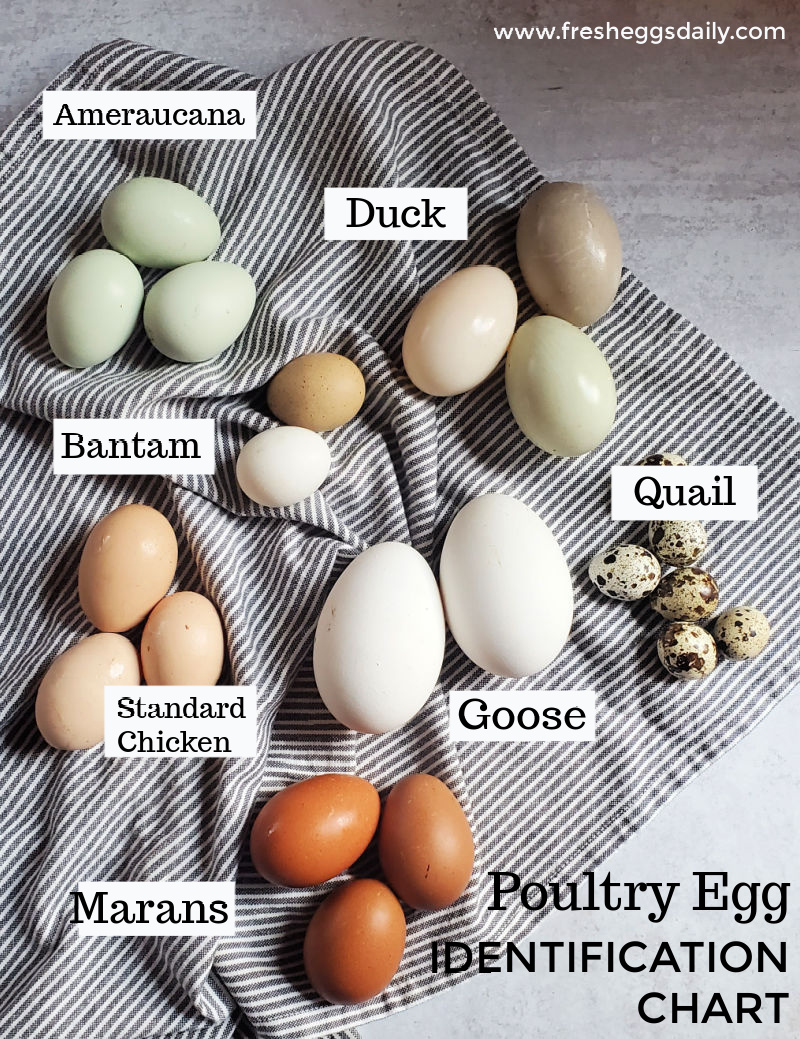Decoding the Rainbow of Eggs A Chicken Egg Color Guide
Ever cracked open a carton of eggs and noticed the delightful array of colors? From pristine white to rich brown, and sometimes even speckled or tinged with blue or green, the diversity of chicken egg hues can be quite captivating. But what determines these shell shades, and do they really tell us anything about the nutritional value or flavor of the egg inside?
The world of chicken egg color is more nuanced than you might think. While many assume that brown eggs are somehow "healthier" or that white eggs are more "processed," the truth is a little less exciting, yet still fascinating. The color of an egg's shell primarily depends on the breed of the hen that laid it. That's it! No secret formulas, no special diets – just simple genetics.
Understanding the nuances of a chicken egg color reference can be a fun and informative journey. It can help dispel common myths and appreciate the natural variations within the food we eat. Let's delve deeper into the science and history behind this everyday wonder.
For centuries, people have observed the different colors of chicken eggs, sometimes ascribing mystical or symbolic meaning to them. However, the scientific understanding of egg color pigmentation didn't truly blossom until the field of genetics advanced. We now know that specific genes within a chicken's DNA dictate the color of the shell, and these genes are passed down from generation to generation.
The pigment responsible for brown eggshells is called protoporphyrin IX. This pigment is deposited on the egg during its formation in the hen's uterus. Different breeds of chickens have varying levels of protoporphyrin production, resulting in a spectrum of brown shades, from light tan to deep, chocolatey brown. White eggs, on the other hand, lack this pigment entirely.
Some chicken breeds even lay eggs in shades of blue or green! These unique colors are due to the presence of a different pigment called oocyanin, which is deposited on the eggshell along with or instead of protoporphyrin. The Araucana and Ameraucana breeds are well known for their blue and green egg-laying prowess. This adds another layer to the chicken egg color guide and provides a fascinating glimpse into the genetic diversity of chickens.
One key benefit of understanding an egg shell color chart is that it demystifies the connection between shell color and nutritional value. The color of the eggshell has absolutely no bearing on the nutritional content, taste, or cooking properties of the egg inside. Brown, white, blue, green – they are all fundamentally the same in terms of their nutritional profile.
Another benefit is that a chicken egg color chart can be a useful tool for backyard chicken keepers. By knowing the expected egg color of a specific breed, they can more easily identify their chickens' laying patterns and manage their flock effectively.
Lastly, appreciating the diversity of egg colors simply adds a touch of wonder to our daily lives. It's a reminder of the intricate beauty of nature and the fascinating genetic variations that exist within even the most common foods we consume.
Frequently Asked Questions:
1. Do brown eggs taste different than white eggs? No, the taste is determined by the hen's diet, not the shell color.
2. Are blue eggs healthier? No, the nutritional value is the same across different egg colors.
3. What causes the speckled appearance on some eggs? Speckles are caused by uneven pigment deposition during shell formation.
4. Can a hen lay different colored eggs? No, a hen will consistently lay eggs of the same color throughout her laying cycle.
5. Why are brown eggs often more expensive? The price difference is usually due to the breed of hen and their feed, not the shell color itself.
6. Can you tell the age of an egg by its color? No, egg color does not indicate freshness or age.
7. Do different colored eggshells have different thicknesses? There can be slight variations in shell thickness between breeds, but color itself isn't a determining factor.
8. Are there any health benefits specific to blue or green eggs? No, the nutritional benefits are the same as other egg colors.
In conclusion, a chicken egg color spectrum is a fascinating subject that reveals the genetic diversity of chickens and debunks common misconceptions about egg quality. While the color of an eggshell might add a touch of visual appeal to our breakfast plates, it’s important to remember that the true value of an egg lies in its nutritional content, which remains consistent regardless of shell color. Embracing this understanding not only allows us to appreciate the simple beauty of a diverse egg carton but also empowers us to make informed food choices based on facts rather than fiction. So next time you’re at the grocery store, don't let the shell color sway you – choose the eggs that fit your needs and enjoy the delicious versatility of this nutritional powerhouse.
Unlocking the power of pure consciousness
Unlock your inner artist mastering the art of duck drawing
Streaming the outsider exploring hbos gripping crime drama














